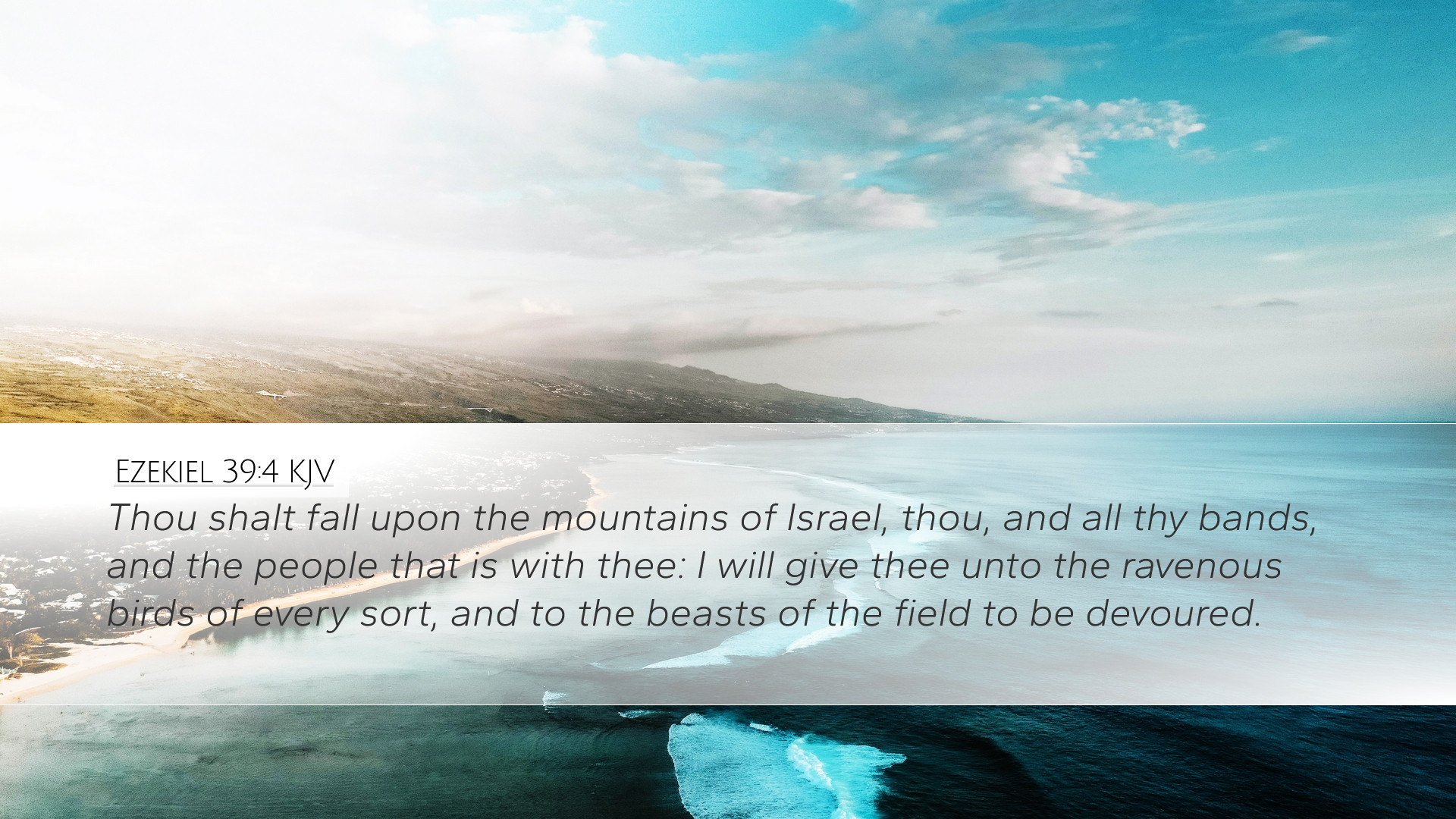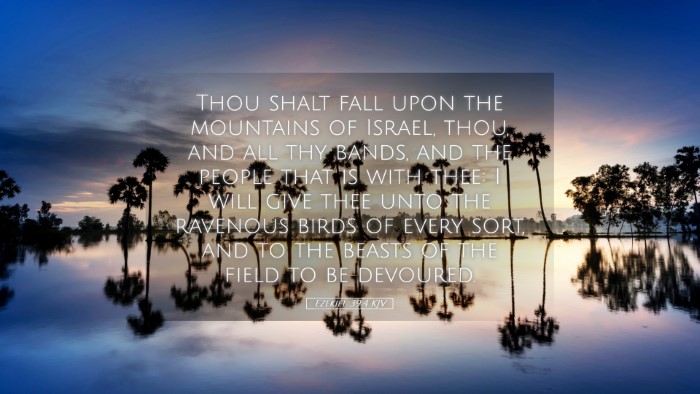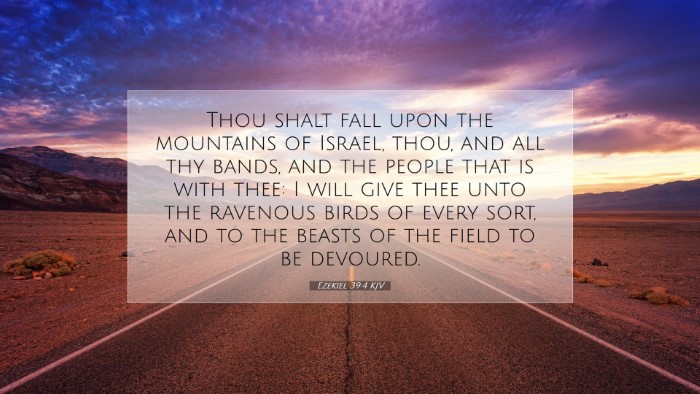Ezekiel 39:4 Commentary
"Thou shalt fall upon the open field: for I have spoken it, saith the Lord God."
Ezekiel 39:4 is a pivotal verse in a section of prophecy that relates to the ultimate defeat of Israel's enemies, particularly the forces represented by Gog of Magog. This verse not only contains a prophetic promise but also an assurance of divine sovereignty over the affairs of nations.
Contextual Overview
The Book of Ezekiel is rich in imagery and prophetic declarations. Within the thematic framework, chapter 39 serves as a denouement to the rebellion of Gog and the final restoration of Israel. The prophetic rhetoric aims to instill hope among the exiled Israelites, emphasizing God’s power and faithfulness.
Interpretation by Matthew Henry
Matthew Henry comments on this verse by emphasizing God's decisive intervention. He notes that the imagery of falling upon the open field symbolizes the total defeat of adversaries in their attempts to invade and destroy God's people. Henry underscores the textual confirmation of God's authority; the phrase "I have spoken it" reflects a covenantal promise as well as a declaration of His unassailable will.
- Divine Sovereignty: Henry accentuates the theme of divine control over human affairs. The fall of Gog is not just an event but a designed outcome in the divine plan.
- Hope for the Faithful: This prophecy serves as a reminder that those who hope in God, despite external threats, can trust in His deliverance.
Insights from Albert Barnes
Albert Barnes provides a detailed exposition, noting that the "open field" implies a lack of concealment, emphasizing the utter shame and defeat of Gog's forces. Barnes points out that this vivid imagery illustrates how God's enemies will be exposed and slain without refuge or dignity.
- Symbolism of the Field: The portrayal of an “open field” conveys vulnerability and total defeat. This serves as a confirmation that God's promise to protect His people is unwavering, regardless of their current circumstances.
- The Role of Prophecy: By affirming the certainty of these words, Barnes highlights the importance of prophecy in reassuring believers of God's imminent intervention and the justice of divine judgment.
Thoughts from Adam Clarke
Adam Clarke approaches this text by emphasizing its metaphorical implications. He seeks to draw parallels between historical events and the eschatological understanding of God’s triumph over evil. Clarke elucidates that the descriptive pronouncement "thou shalt fall" signals not just a physical defeat but also the fall of the spiritual powers associated with Gog.
- Historical Context: Clarke discusses ancient understandings of battle and judgment, stressing that this prophecy reflects not only future events but also serves to reinforce faith within historical crises faced by Israel.
- Theological Implications: He notes the transcendent theological assertion that God's word is unadulterated by time and circumstance; what He declares will assuredly come to pass.
Theological Insights
This verse encapsulates several theological themes relevant to both scholars and practitioners of the faith. Key among them are:
- God's Sovereignty: The proclamation underlines that God rules over the nations. His promise ensures that He will not allow His people to be overwhelmed by their enemies.
- Judgment and Restoration: The unfolding of God's judgment against Gog signifies a necessary precursor to Israel's restoration. The defeat foreshadows a renewed covenant relationship between God and His people.
- Assurance for Believers: As believers today, the assurance found in this prophecy provides comfort amidst trials. Faith in God’s word guarantees ultimate victory over opposition.
Application for Modern Believers
This prophetic declaration not only foretells a historical event but also serves to inspire contemporary applications:
- Encouragement in Trials: Just as Israel was reassured, believers today can find strength through God's promises amidst their struggles.
- Faith in Divine Justice: The assurance of judgment against oppressors reminds believers to maintain hope that God will vindicate them in times of injustice.
- Hope for Restoration: This passage inspires believers to trust in God's plan of restoration, embodying faith that He will bring about renewal in their lives and communities.
Conclusion
Ezekiel 39:4 serves as a critical reminder of God’s unwavering control over history and His promises to His people. The insights drawn from public domain commentaries by Henry, Barnes, and Clarke provide a rich tapestry of understanding that emphasizes divine sovereignty, justice, and the assurance of hope. For pastors, students, theologians, and scholars alike, this verse encourages deep reflection on God's promises and their implications for both personal faith and communal practice.


